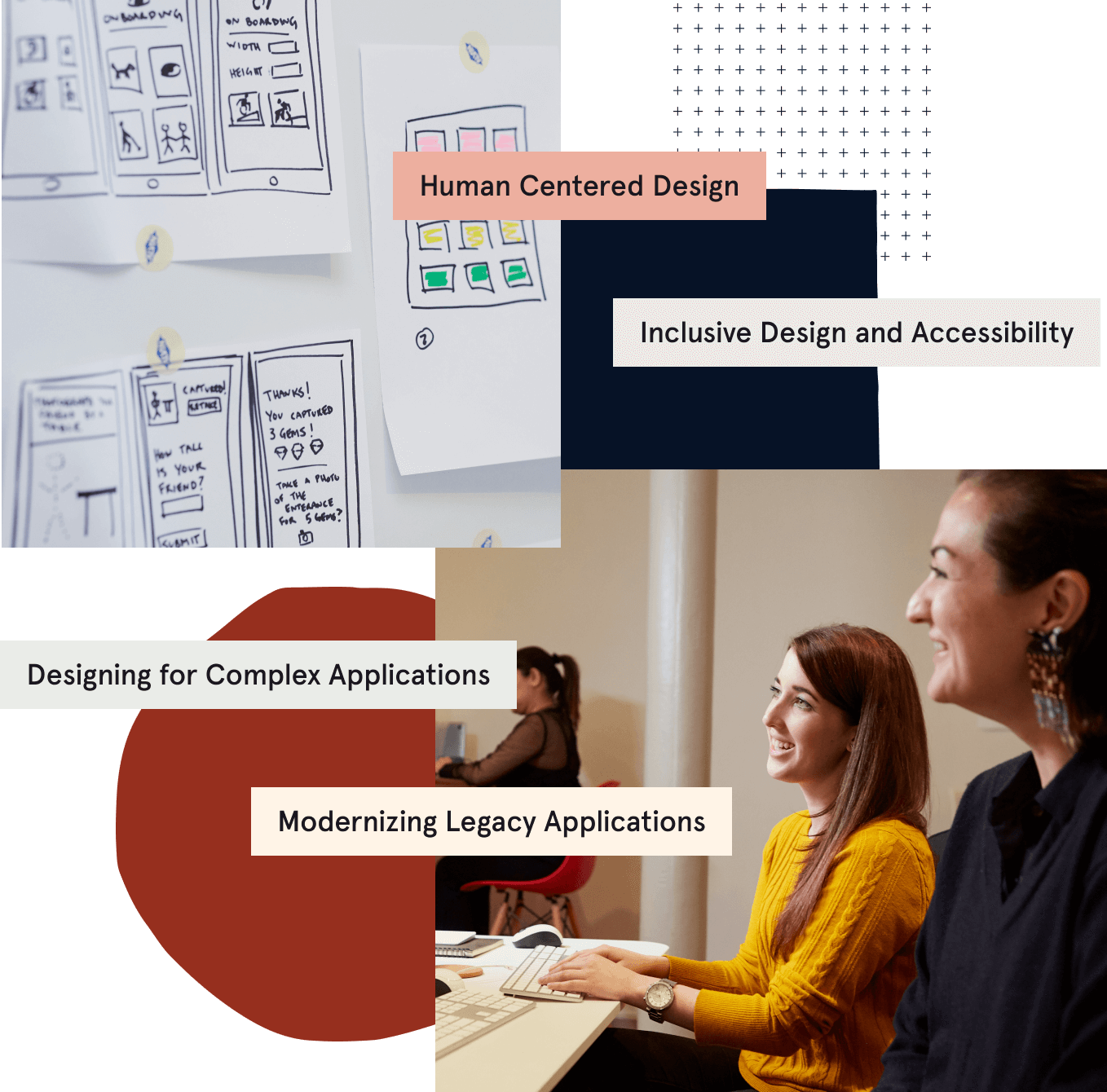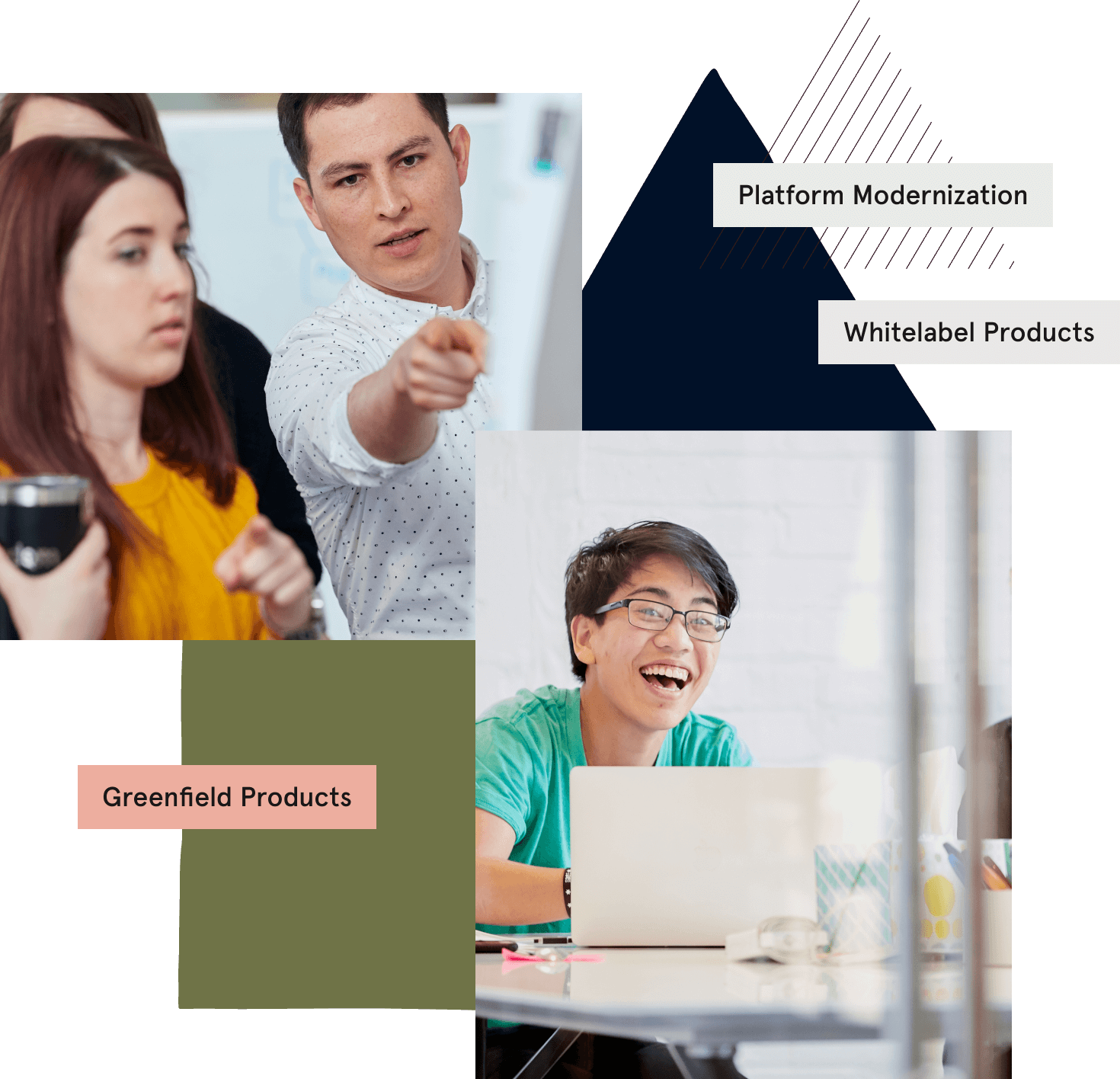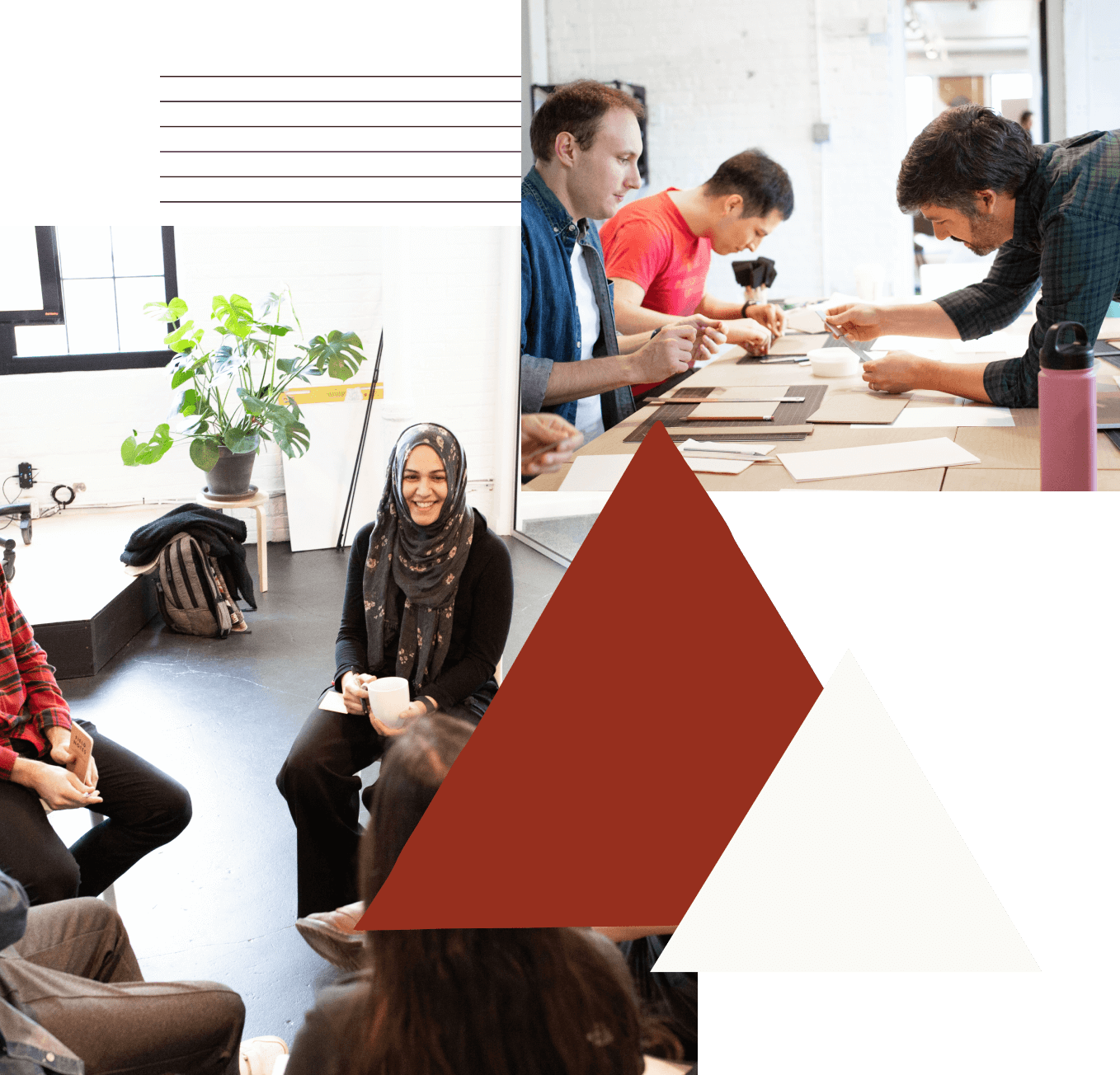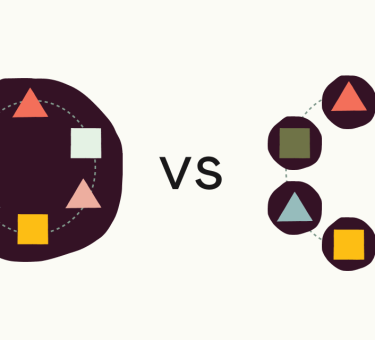Tandem’s software consultants come from many different backgrounds, and many of our engineers began their coding careers at a bootcamp program. In this three-part series, Jess and Caleb share their thoughts on the bootcamp experience, post-bootcamp paths, and Tandem’s apprenticeship program.
Did you have a career advisor at your coding bootcamp?
Caleb: I had an academic success manager who helped me establish goals during bootcamp and become a better learner, which basically meant figuring out my learning style and trying out different time management techniques.
Jess: My bootcamp wasn’t interested in anyone’s individual learning style or time management techniques. It was a bootcamp: follow orders and you’ll make it through. Intensive learning didn’t overwhelm me, but my classmates struggled, and I don’t think the format was kind to them.
Did you have a mentor?
Jess: We didn’t have structured mentorship, but we were encouraged to talk to students from earlier cohorts. We also had TAs from earlier cohorts. Otherwise, we were told to get on LinkedIn and network with people. That’s actually how I met emerita Tandemite Kate Donaldson, who referred me to Tandem!
Caleb: I had a great mentor! He was really eager to help me learn and grow and has a popular YouTube channel with coding tips.
What kind of information did your bootcamp provide about careers in tech?
Caleb: We had weekly Ask Me Anything sessions with the career team, where people in cohorts ahead of us came and answered questions about what they were experiencing during their job search. These sessions were optional, but I kept showing up in hopes of hearing someone talk about apprenticeships or internships.
Jess: My bootcamp’s focus was on getting a job, interview prep, resume-writing, and portfolio building. We did have a couple Q&A sessions with former Actualize students to talk about their jobs, but it was more ad hoc.
There was one piece of advice that was really helpful to me in planning out a career: we were encouraged to connect our pre-bootcamp experience to tech. I had experience in writing, interviewing, and research, so I started thinking about consulting companies.
How did your bootcamp help you develop a portfolio and prepare for technical interviews?
Caleb: At Thinkful, we had career modules super early on, so we kept the end goal of landing a great job in mind. I knew about a month into my program that I definitely wanted an apprenticeship/internship. The career modules consisted of creating portfolios, connecting with devs in our area, practicing interviews, and writing a tech cover letter/resume.
Additionally, after finishing each unit of our curriculum, we had a mock interview where we were tested on the material. The mock interview always made me really anxious, but I was pleasantly surprised when those mock interviews were pretty similar to the interviews I had for actual tech jobs too!
Jess: I chose my bootcamp because I wanted help with my job search. Actualize had a fantastic post-grad support system, including dedicated job search help. I had help with networking, cover letters, resumes, technical interviews, and whiteboarding.
Actualize also helped me build a portfolio. Until you got a job, you were required to come to a workshop session once a week, where you would work with other recent graduates on portfolio projects. You were encouraged to pair with recent graduates outside of class, and I paired for hours every day.
What was your job search like?
Jess: Actualize’s post-grad support came in really handy when I graduated in March 2020, right at the beginning of COVID-19 lockdown. Hiring in the tech industry froze, and many companies furloughed or laid off developers who were first in line when hiring picked up months later. I had planned on finding a job within two or three months, but my pandemic job search took nearly nine.
The post-grad program was my community, and it helped that we were all in the same boat. During those nine months, I had the chance to build on the basic principles I’d learned in bootcamp. Being unemployed during a pandemic was stressful, but I became much more confident about my coding skills, and gained a much better understanding of my own strengths as a developer.
Caleb: Networking! I know it’s an icky word, but I knew that if I talked to enough people, someone was bound to either be working at a place that offered apprenticeships or know of a place that offered apprenticeships. So after getting halfway through the program, I followed a bunch of devs on YouTube, Twitter, and Instagram! I started commenting on their posts — not self-serving comments like, “hey do you know of anyone who’s hiring?!”, but commenting on content relevant to me.
I spent a lot of time going to LGBTQ+ tech events and messaging speakers or moderators on LinkedIn afterwards. I had quite a few informational interviews and I still keep up with some of the professionals I met!
Ultimately, I found Tandem through a Thinkful alum. Thinkful has a job posting channel on Slack and someone posted there about Tandem’s apprenticeship.
What advice would you give to recent bootcamp grads starting their careers?
Caleb: Be gracious to yourself. I remember always feeling like I could never learn enough, but I was so wrong about that. Thinking back, I’m pretty impressed by what my past self was able to accomplish, especially in the middle of a pandemic. So, I guess the lesson out of that is recognize that you’re learning more than what you think.
I would also start networking early. I know a lot of my peers prioritized learning as many coding skills as they can, and didn’t focus on networking at all. I think going to tech events and talking to people who actually worked in tech kept me feeling motivated, inspired, and curious!
Jess: Bootcamps rely on strict standardization. It was hard for me to step away from that dynamic. What helped me was to collaborate and build creative projects. If you’re not sure what you want to do, it’s a good idea to give yourself a little time to explore before committing to a particular post-bootcamp path. Meetups, conferences, open-source projects, and LinkedIn are good places to find inspiration.
You’ll probably also encounter a lot of developers who seem like they’re progressing at lightning speed: coding for hours every day, racking up Github commits, showing off new projects. Don’t worry if you feel like you’re not progressing fast enough — everyone learns at their own speed. Focus on long-term growth, and be kind to yourself.









